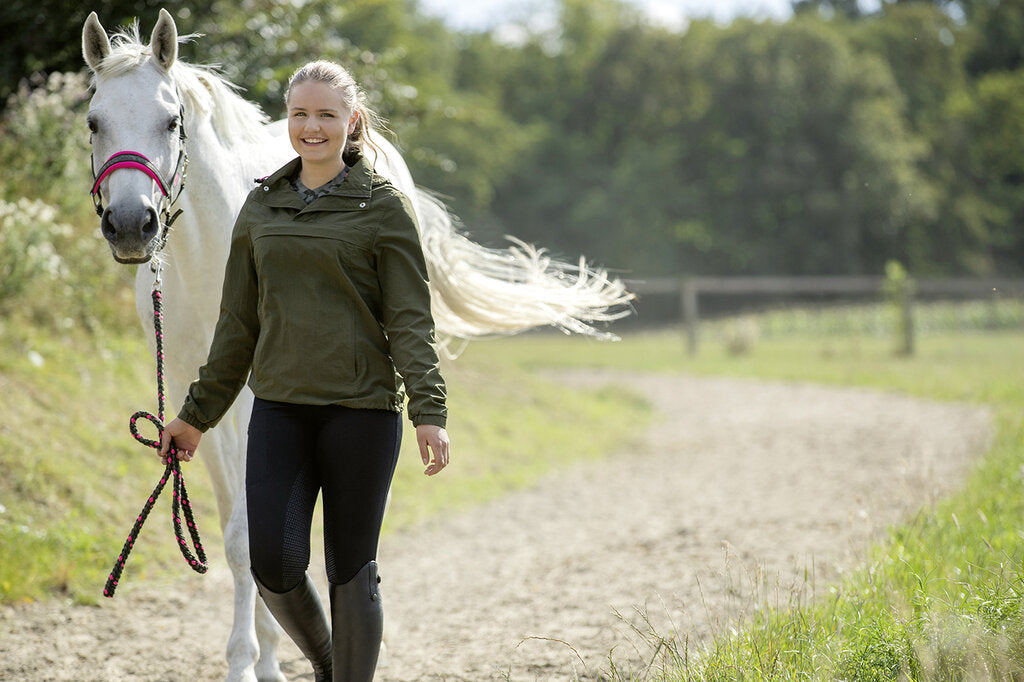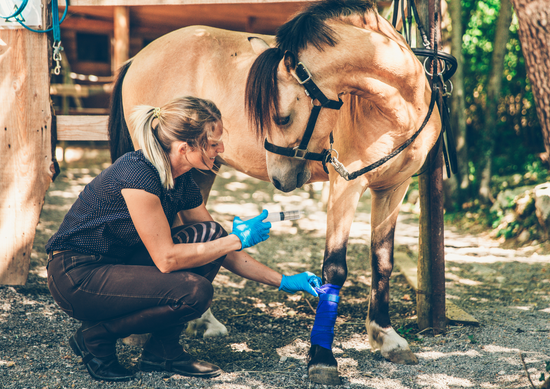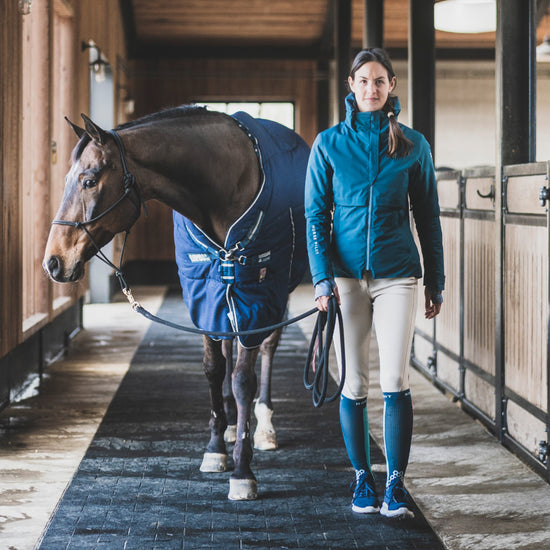Turning your horses out in Spring is something horses and we as owners look forward to. After a long winter, the sight of seeing your horses out on the field and grazing on fresh spring grass is heartwarming. However, the transition from winter to spring requires careful management to ensure the health and well-being of your horses. Here are some key considerations to ensure your horse can enjoy their time on the field this Spring.
1. Gradual Introduction to Pasture
Rapid changes in diet can lead to digestive upsets. After a winter of hay, horses' digestive systems need time to adjust to the rich, lush spring grass. Start by allowing your horse limited grazing time, gradually increasing it over a few weeks.
2. Monitor Grass Intake
Spring grass is high in sugar and can increase the risk of laminitis in susceptible horses. Consider using a grazing muzzle to limit intake if your horse is prone to laminitis, is overweight, or has metabolic issues.
3. Vaccinations and Parasite Control
Spring is the perfect time to ensure your horse is up-to-date on vaccinations and has been dewormed. Diseases and parasites can be more prevalent in warmer months, so consult with your veterinarian for a tailored health plan.
4. Check Fencing and Pasture Safety
Before turning your horses out, inspect the pasture for hazardous plants, holes, and broken fencing. Safe, secure fencing is crucial to prevent injuries and escape.
5. Transitioning Exercise Routines
If your horse has had limited exercise over the winter, gradually increase their activity level to prevent muscle soreness and injuries. Incorporate stretching and warm-up routines to help your horse adjust.
6. Water and Shelter
Ensure there is ample, clean water available in the pasture. Additionally, provide access to shelter from rain, wind, and the sun, as spring weather can be unpredictable.
7. Foot Care
Wet conditions in spring can lead to hoof problems such as thrush. Regular hoof care and clean, dry areas for standing can help prevent these issues.
Turning out onto fiels is a beneficial and enjoyable time for horses, offering them freedom to move and graze naturally. By taking precautions to manage their diet, health and environment, you can ensure a smooth transition to spring pasture, keeping your horse happy and feeling their best during this wonderful season.
Remember, every horse is unique which means their needs can vary based on health, age and activity level. Always keep this in mind and work closely with your vet to develop a Spring care plan that's right for your horse.





